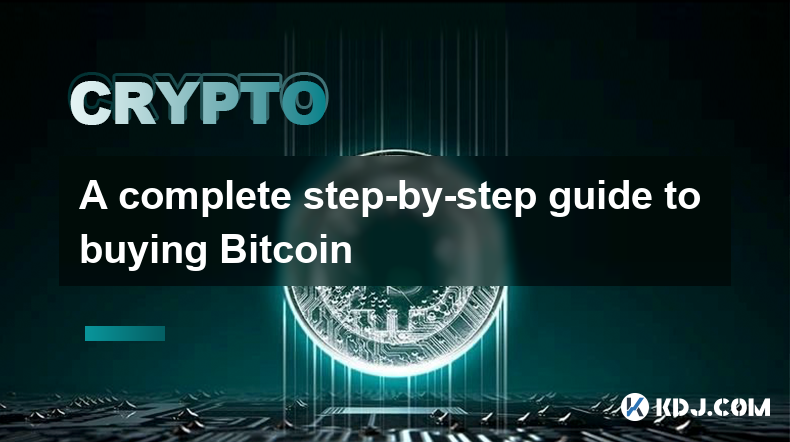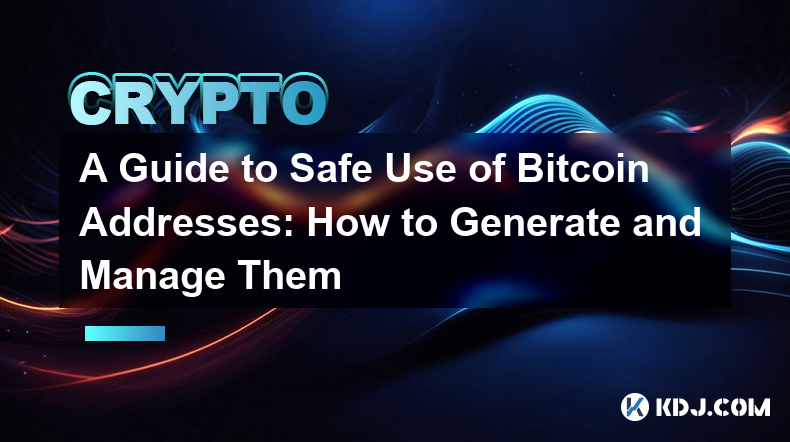-
 Bitcoin
Bitcoin $96,640.2391
-1.65% -
 Ethereum
Ethereum $2,774.9044
1.56% -
 XRP
XRP $2.5935
-0.94% -
 Tether USDt
Tether USDt $1.0000
-0.01% -
 BNB
BNB $661.2079
0.74% -
 Solana
Solana $173.1228
-0.78% -
 USDC
USDC $1.0000
0.02% -
 Dogecoin
Dogecoin $0.2460
-2.67% -
 Cardano
Cardano $0.7730
-3.13% -
 TRON
TRON $0.2359
-2.98% -
 Chainlink
Chainlink $17.8332
-2.31% -
 Avalanche
Avalanche $25.7255
1.25% -
 Sui
Sui $3.4300
-0.19% -
 Stellar
Stellar $0.3347
-0.39% -
 Litecoin
Litecoin $128.4555
-3.57% -
 Toncoin
Toncoin $3.6770
-0.21% -
 Shiba Inu
Shiba Inu $0.0...01556
-0.53% -
 Hedera
Hedera $0.2180
-0.53% -
 UNUS SED LEO
UNUS SED LEO $9.6924
-0.40% -
 Hyperliquid
Hyperliquid $24.6648
-2.80% -
 Polkadot
Polkadot $5.0984
-2.54% -
 MANTRA
MANTRA $7.5025
-0.29% -
 Bitcoin Cash
Bitcoin Cash $321.1194
-1.61% -
 Bitget Token
Bitget Token $4.9576
2.81% -
 Ethena USDe
Ethena USDe $0.9996
0.24% -
 Uniswap
Uniswap $8.9840
-2.46% -
 Dai
Dai $1.0001
0.03% -
 Monero
Monero $236.2089
0.29% -
 NEAR Protocol
NEAR Protocol $3.5181
0.81% -
 Pepe
Pepe $0.0...09660
0.25%
How to store Bitcoin safely
Choosing a hardware wallet with strong security features, isolating private keys offline, and enabling two-factor authentication are essential steps for safeguarding your valuable Bitcoin assets.
Feb 02, 2025 at 08:00 pm

How to Store Bitcoin Safely
Storing Bitcoin securely is crucial to protect your digital assets from unauthorized access and theft. Here's a comprehensive guide to guide you through the safest practices for keeping your Bitcoin safe:
Key Points:
- Choose a reputable and secure hardware wallet.
- Keep your private keys offline and never share them.
- Enable two-factor authentication for all your accounts.
- Use strong passwords and change them regularly.
- Be vigilant against phishing attacks and scams.
- Store Bitcoin on multiple hardware wallets.
- Keep your software up to date.
- Educate yourself about Bitcoin security best practices.
- Consider geographical distribution of stored Bitcoin.
Step-by-Step Guide:
1. Choose a Reputable and Secure Hardware Wallet:
A hardware wallet is a physical device designed specifically for storing cryptocurrencies offline. Unlike software wallets, hardware wallets keep your private keys isolated from the internet, making them much less vulnerable to hacking and theft.
When choosing a hardware wallet, consider factors such as security features (e.g., multi-factor authentication, PIN protection), reputation (read online reviews and check industry certifications), and ease of use. Some top-rated hardware wallets include:
- Ledger Nano X
- Trezor Model T
- SafePal S1
- Keystone Pro
- CoolWallet Pro
2. Keep Your Private Keys Offline and Never Share Them:
Your private keys are like the master keys to your Bitcoin. They allow you to access and spend your funds. It's paramount that you keep them offline, meaning not stored on any device connected to the internet, and never share them with anyone.
Hardware wallets typically store your private keys offline, but beware of fake or compromised devices. When setting up your hardware wallet, carefully initialize the device and verify its authenticity.
3. Enable Two-Factor Authentication for All Your Accounts:
Two-factor authentication (2FA) adds an extra layer of security to your accounts by requiring you to provide two pieces of information to log in, typically your password and a code sent to your mobile phone. This makes it much harder for hackers to gain unauthorized access to your accounts, even if they have your password.
Enable 2FA on all your accounts that are linked to your Bitcoin, such as cryptocurrency exchanges, hardware wallet management apps, and email accounts.
4. Use Strong Passwords and Change Them Regularly:
Create strong passwords that are at least 12 characters long and contain a mix of uppercase, lowercase, numbers, and symbols. Avoid using common words or predictable patterns, and never reuse passwords across multiple accounts.
Change your passwords regularly, especially if you suspect any security breach or compromise.
5. Be Vigilant Against Phishing Attacks and Scams:
Phishing attacks are attempts to trick you into giving away your sensitive information, such as your private keys or passwords, by masquerading as legitimate entities. Scammers may send you emails or messages that appear to come from cryptocurrency exchanges, hardware wallet manufacturers, or other trusted sources, urging you to click links or download attachments.
Always verify the authenticity of any communication before taking any action. Check the sender's email address or website carefully, and hover over links to see the true destination. Never click links or download attachments from unknown or suspicious sources.
6. Store Bitcoin on Multiple Hardware Wallets:
If you own a significant amount of Bitcoin, consider spreading it across multiple hardware wallets. This provides redundancy in case one wallet is lost, stolen, or compromised.
Choose different hardware wallets from different manufacturers to minimize the risk of a single point of failure. Keep the hardware wallets in separate secure locations and ensure they have unique PINs.
7. Keep Your Software Up to Date:
Both hardware wallets and Bitcoin software (e.g., Bitcoin Core, Electrum) release periodic updates to address security vulnerabilities. It's crucial to keep your software up to date to ensure your funds remain protected.
Regularly check for updates to your hardware wallet's firmware and the Bitcoin software you use. Follow the instructions provided by the manufacturers to safely apply the updates.
8. Educate Yourself About Bitcoin Security Best Practices:
The world of cryptocurrencies is constantly evolving, and it's important to stay updated on the latest security measures and best practices. Read blog posts, articles, and other resources from reputable sources to enhance your understanding of Bitcoin security.
Attend industry events and conferences to learn from experts and network with fellow community members.
**9. Consider Geographical
Disclaimer:info@kdj.com
The information provided is not trading advice. kdj.com does not assume any responsibility for any investments made based on the information provided in this article. Cryptocurrencies are highly volatile and it is highly recommended that you invest with caution after thorough research!
If you believe that the content used on this website infringes your copyright, please contact us immediately (info@kdj.com) and we will delete it promptly.
- DTX Exchange at $0.18: The Breakout Altcoin Whales Are Betting On
- 2025-02-23 01:05:25
- DOGE and PEPE Are Still Facing Challenges, Struggling to Regain Their Momentum after the Recent Bearish Market Trend
- 2025-02-23 00:45:25
- Pepe Coin (PEPE) Price Prediction 2023-2025: Can the Meme Coin Reclaim Its Former Highs?
- 2025-02-23 00:45:25
- Mutuum Finance: Poised to Revolutionize Crypto and DeFi Markets
- 2025-02-23 00:45:25
- #Pepeto Gains Traction in the Cryptocurrency Market with Its Presale Phase, Offering Tokens at an Attractive Price
- 2025-02-23 00:45:25
- Mooshot Crosses the $1 Million Mark, Signaling Strong Market Interest in AI-Powered Gaming
- 2025-02-23 00:35:25
Related knowledge

Where to buy Bitcoin
Feb 20,2025 at 05:58pm
Choose a Reputable Cryptocurrency ExchangeResearch the Market: There are numerous cryptocurrency exchanges available, such as Binance, Coinbase, and Kraken. Research their features, fees, security measures, and user reviews. For example, Binance is known for its wide range of trading pairs, while Coinbase is popular for its user - friendly interface.Che...

How to Buy Bitcoin for Beginners
Feb 20,2025 at 05:48pm
1. Understand Bitcoin BasicsWhat is Bitcoin?Bitcoin is a decentralized digital currency, often called cryptocurrency. It operates without a central bank or single administrator. Transactions are verified by network nodes through cryptography and recorded in a public distributed ledger called a blockchain.How Does Bitcoin Work?Miners use powerful compute...

A complete step-by-step guide to buying Bitcoin
Feb 20,2025 at 05:42pm
Choose a Reputable Bitcoin ExchangeFirst, research and select a reliable exchange. Popular ones include Coinbase, Binance, and Kraken. Consider factors like security, fees, available payment methods, and user - friendliness. For example, Coinbase is beginner - friendly with a simple interface.Sign Up and Verify Your IdentityAfter choosing an exchange, c...

A Guide to Safe Use of Bitcoin Addresses: How to Generate and Manage Them
Feb 20,2025 at 05:19pm
Bitcoin Address GenerationUnderstand the BasicsA Bitcoin address is a string of alphanumeric characters. It's like a virtual wallet address for receiving and storing bitcoins. Each address is unique and linked to a specific private key.Choose a Reliable WalletThere are various types of Bitcoin wallets, such as software wallets (desktop, mobile), har...

How to recover lost Bitcoin address?
Feb 20,2025 at 05:16pm
Understanding Bitcoin AddressesA Bitcoin address is a unique identifier similar to an email address or a bank account number in the traditional financial system. It is used to receive and send Bitcoins. Each Bitcoin address is associated with a pair of keys: a public key and a private key. The public key is derived from the private key through a complex...

When did Bitcoin come out?
Feb 03,2025 at 09:18pm
When Did Bitcoin Come Out?1. Early Development and the Genesis Block (2008-2009)Satoshi Nakamoto's white paper laid the foundation for Bitcoin in October 2008.On January 3, 2009, the Genesis block was mined, marking the official birth of the Bitcoin network.2. Rise of Bitcoin Exchanges (2010-2014)Mt. Gox emerged as the first major Bitcoin exchange in 20...

Where to buy Bitcoin
Feb 20,2025 at 05:58pm
Choose a Reputable Cryptocurrency ExchangeResearch the Market: There are numerous cryptocurrency exchanges available, such as Binance, Coinbase, and Kraken. Research their features, fees, security measures, and user reviews. For example, Binance is known for its wide range of trading pairs, while Coinbase is popular for its user - friendly interface.Che...

How to Buy Bitcoin for Beginners
Feb 20,2025 at 05:48pm
1. Understand Bitcoin BasicsWhat is Bitcoin?Bitcoin is a decentralized digital currency, often called cryptocurrency. It operates without a central bank or single administrator. Transactions are verified by network nodes through cryptography and recorded in a public distributed ledger called a blockchain.How Does Bitcoin Work?Miners use powerful compute...

A complete step-by-step guide to buying Bitcoin
Feb 20,2025 at 05:42pm
Choose a Reputable Bitcoin ExchangeFirst, research and select a reliable exchange. Popular ones include Coinbase, Binance, and Kraken. Consider factors like security, fees, available payment methods, and user - friendliness. For example, Coinbase is beginner - friendly with a simple interface.Sign Up and Verify Your IdentityAfter choosing an exchange, c...

A Guide to Safe Use of Bitcoin Addresses: How to Generate and Manage Them
Feb 20,2025 at 05:19pm
Bitcoin Address GenerationUnderstand the BasicsA Bitcoin address is a string of alphanumeric characters. It's like a virtual wallet address for receiving and storing bitcoins. Each address is unique and linked to a specific private key.Choose a Reliable WalletThere are various types of Bitcoin wallets, such as software wallets (desktop, mobile), har...

How to recover lost Bitcoin address?
Feb 20,2025 at 05:16pm
Understanding Bitcoin AddressesA Bitcoin address is a unique identifier similar to an email address or a bank account number in the traditional financial system. It is used to receive and send Bitcoins. Each Bitcoin address is associated with a pair of keys: a public key and a private key. The public key is derived from the private key through a complex...

When did Bitcoin come out?
Feb 03,2025 at 09:18pm
When Did Bitcoin Come Out?1. Early Development and the Genesis Block (2008-2009)Satoshi Nakamoto's white paper laid the foundation for Bitcoin in October 2008.On January 3, 2009, the Genesis block was mined, marking the official birth of the Bitcoin network.2. Rise of Bitcoin Exchanges (2010-2014)Mt. Gox emerged as the first major Bitcoin exchange in 20...
See all articles

















![BONK The Meme Coin MORE THAN ORDINARY [DOG] on Solana BONK The Meme Coin MORE THAN ORDINARY [DOG] on Solana](/uploads/2025/02/22/cryptocurrencies-news/videos/bonk-meme-coin-ordinary-dog-solana/image-1.jpg)


































































